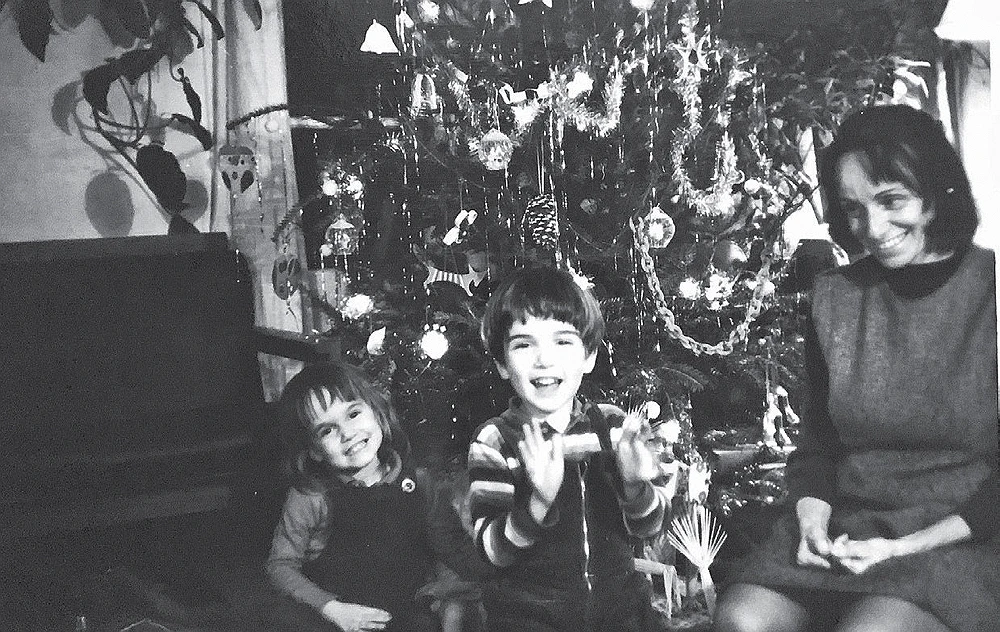Editor’s note: Brian Palmer ’86, Ph.D. ’00, a social anthropologist and scholar of religion at Uppsala University in Sweden, submitted this piece of his family’s history.
In the 1950s, Ina (John) Bonnell was the librarian of Harvard’s burgeoning Russian Research Center and a doctoral candidate with the celebrated linguist Roman Jakobson. Like him, she was a Jewish refugee from Prague. But the story was more complicated—her Christian father (from Germany) and her Jewish mother (from Prague) had divorced soon after her birth in Leipzig in 1925, and she had not seen her father since.
Sixty years later, she and her children were still wondering what became of her father. They knew only that he had been a journalist, and could only imagine what happened to him during the Nazi era in Germany.
Ina’s son, Brian, asked his friend Ian Watson ’92, a professional genealogist, for help. Ian works as the editor of the 156-year-old New York Genealogical and Biographical Record and lives in Bavaria. During the COVID pandemic, in the winter of 2021-2022, he tracked down Ina’s father’s publications and sent away for records that built up the story of his life. One discovery was that Ina’s grandfather, Ernst Hermann Hugo John (1867-1937), was one of Germany’s pioneering ethnographers, studying and writing about rural Saxony at the same time as he worked as a high school teacher. Brian had earned a Ph.D. from Harvard in the anthropology of western Europe without ever knowing that his great-grandfather had worked in the same field.
It turned out that Ina’s father had remarried and had children with his second wife. One of them was now 80 years old and had an unusual name, and the telephone directory showed a man by that name living in Berlin. With a deep breath, Ian picked up the phone and cold-called the number.

At first, Joachim John suspected a crank call. But he knew that he did have a half-sister, who he thought had perished in the Holocaust. Ian kept Joachim on the line and was able to explain to him that his half-sister, now in her nineties, was still living, in the United States. Joyful Skype calls resulted, where the two siblings spoke in German about their father and their respective fates.
In April 2024, at age 98, Ina fell and her condition worsened. Brian and his sister, Cynthia Palmer ’88, J.D. ’93, M.P.H. ’94, were at her bedside. Joachim sent a voice message, signing it as “your brother Joachim,” and Brian and Cynthia played the message for Ina. Still in wonder at her new-found family, Ina exclaimed: “Mein Bruder!” It was the last day she was able to speak; she died three days later.









